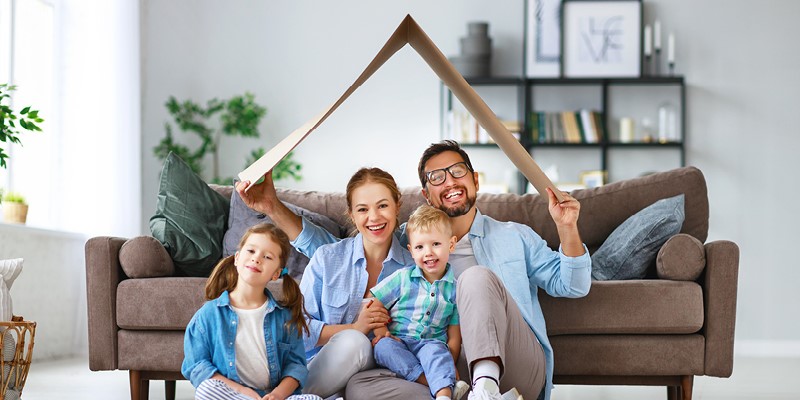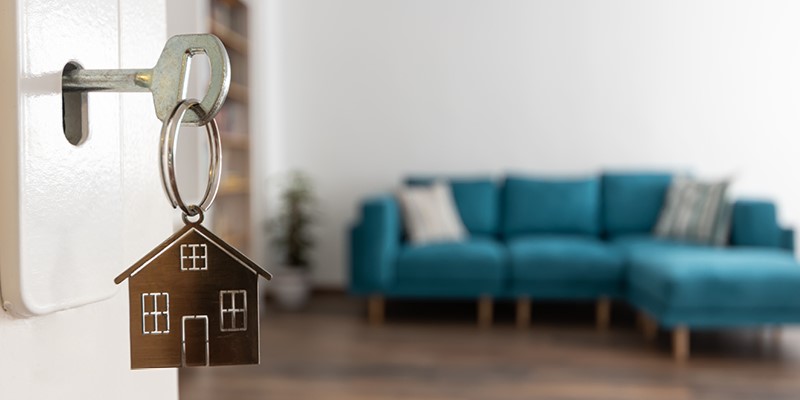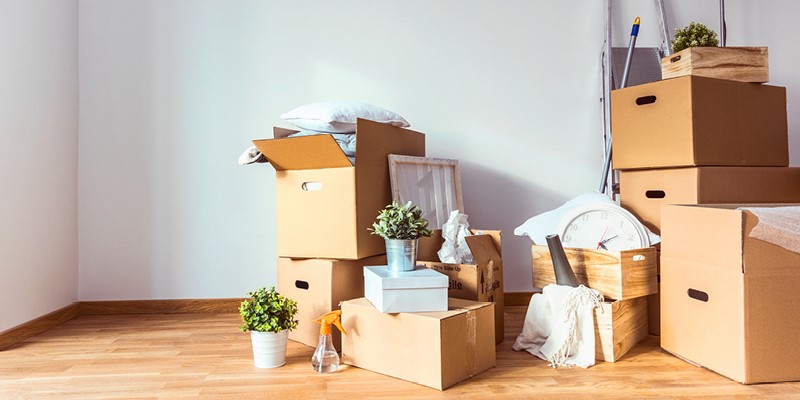Renting vs Buying a Home: Which is Right for You?

When it comes to finding an affordable place to live, the debate around renting vs buying your home has been around for years. While there are pros and cons on both sides, the decision ultimately comes down to what is right for you based on your unique situation. We created this article to help you answer the question, “can I afford a house?”
The Pros of Renting Your Home
There are many advantages to renting instead of purchasing a home. For starters, renting gives you the flexibility to move whenever you want without having to worry about selling your home. Explore all the advantages of renting.
- You’ll enjoy more freedom and flexibility. When you rent, you're not tied down to one property or location. If you need to move for work or personal reasons, it's much easier. In fact, about 26% of renters moved to a new home in the past year. After your initial lease period is up, you can ask for a month-to-month lease so that you only have to give 30 or 60 days’ notice before leaving.
- You're not tied down to one location. When you rent, you don’t have to make a long-term commitment to a specific dwelling, neighborhood, city, town, or state. If you end up not liking your rental or just want to try out different scenery, you can move more easily and quickly than if you owned a home. This can be especially helpful if you lose your job and need to relocate to find a new position.
- You can enjoy better amenities. This is more true for newer apartment buildings than single-family homes and duplexes, but it’s a nice opportunity to enjoy things like a gym, pool, and conference room on-site that you wouldn't have if you owned your own home. New developments tend to offer great amenities inside the apartments as well such as granite countertops, high-quality appliances, hardwood floors, etc.
- You don’t have to pay for maintenance and repairs. This is perhaps the best advantage of renting. Routine maintenance and needed repairs are the landlord's responsibility to take care of or pay someone else to do. This saves you time and money that you can then use on other things.
- Renting is easier to budget for. When you rent your home, you have a fixed monthly rental payment. This amount can only change once a year, when it’s time to renew the lease, and you’ll have advance notice. This is easier to budget for than owning a home, which often brings unanticipated expenses.
- Live where you can’t afford to buy. In three-quarters of the country’s largest metro areas, renting is more affordable than buying a starter home. This means you could live in a more desirable location by renting than you could afford to buy a home in.
The Cons of Renting a Home
Renting may be a more flexible and affordable option than buying a home, but being a renter comes with its own set of disadvantages. If you're thinking about renting instead of buying a home, there are a few things you should keep in mind.
- Your monthly rent isn’t fixed. You could see an increase in rental costs every year when you renew your lease. In fact, rents have risen by record amounts in the last few months. If you want to move to a new rental, the increase could be more dramatic. Landlords tend to minimize rent increases for good long-term tenants.
- You may not be allowed to have pets. Many landlords and property management companies forbid pets outright. If they do allow cats or small dogs, you will likely have to put down an additional pet deposit on top of your security deposit.
- You’re at the mercy of your landlord. When it comes to routine maintenance and repairs, your landlord is responsible but how quickly repairs are made and how well the unit is maintained can depend. If you are unhappy with how your landlord is maintaining your rental, you have little recourse except to move. Your landlord also controls your long-term stability–if they decide to sell the property, you may have to move when you didn’t want to.
- You’re missing out on tax benefits. Homeowners with a mortgage may be able to deduct the interest paid on their mortgage on their federal tax returns. There is no similar tax benefit for renters.
- You don’t have any equity in your home. Some people say that renting a home means “throwing your money away.” This is because you don’t build equity in a rental property the way you can as a homeowner. When you move from a rental property, you hopefully get your security deposit back, but that’s it.
The Pros of Buying Your Home
It’s no secret that buying a house is a huge investment. Not only do you have to come up with a down payment, but you also have to contend with closing costs, repairs, and other miscellaneous expenses. While renting has become more popular in recent years, there are still many advantages to owning your own home. Here are the top benefits of homeownership.
- Homeownership gives you stability. In addition to the financial stability of a fixed monthly mortgage payment for up to 30 years, you can also enjoy the stability of not having to move unless you want or need to. The cost of renting is rising faster than the cost of living, and if you have to move from your rental, chances are your monthly rental cost will go up even more.
- Homeownership gives you privacy. When you own a home, you have the privacy of your outdoor and indoor spaces. You also don’t have to worry about your landlord entering your home to check or fix something.
- You can make it your own. While you can decorate a rental, you usually can’t change the paint colors or choose a different dining room light fixture, much less make larger renovations. When you own your home, you can wake up one morning and decide to remove a wall or make whatever other changes you wish. Essentially, it’s your space and you can do what you want.
- You’re building equity and wealth. For many people, owning a home is their biggest asset. The equity you build in your home by paying down your mortgage and making improvements is also building your net worth. You can tap that wealth while still living in your home, through a home equity loan or HELOC, or realize a nice profit when you sell your home some day. Renting leaves you with nothing to show for it at the end.
- Your retirement can be more affordable. If you own your home, you can pay off the mortgage before you retire, reducing your cost of living in retirement.
- Take advantage of tax benefits. The interest paid on your mortgage may be tax-deductible on your federal tax return. You may also be able to deduct some of the property taxes you pay.
Cons of Buying a Home
There are a number of reasons why buying a house might not make sense, at least right now. Perhaps the most obvious is that you're tying yourself down to one location. If you want to move, you'll have to go through the hassle and expense of selling your house. You're also stuck with all the maintenance and repair bills that come with owning a home. Consider the disadvantages of homeownership before you decide to buy a house.
- Low Inventory is causing prices to rise dramatically. That, coupled with rising interest rates, has made many homes unaffordable, especially for first-time buyers.
- It’s time-consuming. The process of finding, buying and moving into a house can take three to four months or longer, especially if you get out-bid for your first choice home. If you need a place to live right now, buying might not be an option.
- The upfront costs can be significant. To buy a home, you’ll need to put 20% down (a lower down payment may be an option with one of our special mortgage programs), have 2%-6% of your total loan amount for closing costs, and also cover extraneous costs associated with buying a home and moving.
- Home maintenance and upkeep are ongoing expenses. While you plan for some maintenance and repair costs, others will spring up at the worst possible time. A rule of thumb is to set aside 1%-4% of your home's value for a home maintenance fund. For example, for a home valued at $200,000, you would budget $2,000 to $8,000 per year to spend on annual upkeep.
- It’s hard to move. Once you’ve bought a house, moved in, and made it your own, it can be hard to move. For one thing, you probably accumulated more stuff in the time you lived there. Also, you may have to put some effort and money into fixing your house up to sell. So, before you buy a house, you want to feel pretty certain that you’ll be there for the long-run.
So, Which Option is Right for You?
Luckily, Oklahoma City is an affordable place to live whether you’re buying or renting. We also have the third lowest commute time among the 52 largest cities in the country. If you’re looking to put down roots in the Greater Oklahoma City area with a home of your own, get started by speaking with one of our mortgage lenders. We live and work in the same communities as you, possessing local expertise in the real estate markets in Okalahoma City, Edmond, Yukon, Guthrie, Piedmont, Crescent, Kingfisher, and more. We can walk you though the process and help you evaluate the affordability of buying a home.




